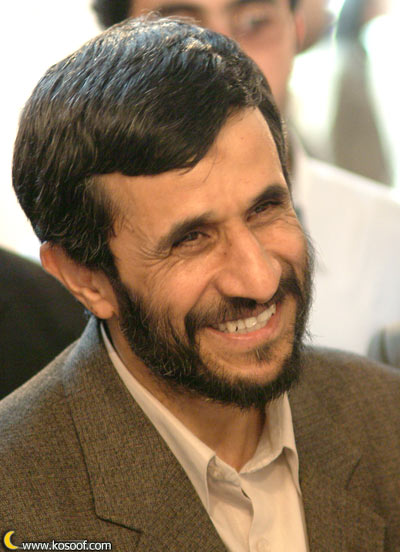Apparently Star Wars groupies in Washington are preparing for May’s Star Wars Celebration IV in Los Angeles a little early. The convention pays homage to the release of the first Star Wars film, released 30 years ago. Officials from the Missile Defense Agency, MDA, think what better way to channel the Jedi force, than to go back in time and expand the “Star Wars” missile defense system to Central and Eastern Europe. Their attempts to divide the world into the light side and dark side, however, is just as outdated as watching “The Empire Strikes Back” on VHS. Expanding the missile defense system into Europe while ignoring international concern only further encourages U.S. isolation in the international community.
U.S. and U.K. officials seem united in believing missile interceptor sites in Europe will protect both countries and their European allies. Potential host countries Poland and the Czech Republic are interested as well. The emerging Iranian threat, headed by dark and deceptive Emperor Ahmadinejad, remains the single uniting reason to support the MDA. And belief that Iran may emerge as a nuclear threat is legitimate. So is the North Korean threat.
The world is different than it was when “Star Wars,” the movie and the missile defense system were introduced. Iran and North Korea are not the evil empires the United States alone must combat to save the world. Instead, the international community is vastly complex with many members vying for respect, authority and cooperation. It isn’t as simple as the U.S. protecting its allies and itself.
Point in case: Russia’s ominous response to U.S. proposals. The original evil empire at the onset of “Star Wars” missile defense system has made itself quite clear. U.S. interceptor satellites in Poland and Czech Republic will be interpreted as an aggressive act on Russia and will incur an equal and opposite “force” - yes that is another Star Wars reference- in response.
Although stemming from what is post-Cold War paranoia, Russia has every right to object to U.S. missile interceptors next to its borders. The U.S. cannot hope to gain momentum in their plan without aggressively and persuasively engaging Russia in their missile defense expansion plan. Failure to do so indicates U.S. indifference, which is counterproductive to dismantling the Cold War mentality that to this day still rears its ugly head.
Meanwhile, in Europe…German Chancellor Angela Merkel has been the system’s most vocal critic next to Russian President Vladimir Putin. She echoes Putin’s concern that U.S. actions will provoke an arms race, and destabilize NATO, the EU or both. Yet her criticism has been subdued as of late- probably a result of U.S. Secretary of State Condoleezza Rice’s Jedi abilities when she met with German Foreign Minister Frank-Walter Steinmeier Monday, March 26.
And the U.S. goodwill tour continued throughout the European galaxy. The Czech Republic agreed on Wednesday, March 28 to open official negotiations for hosting U.S. interceptor satellites in its territory. MDA’s goal is to have the half a billion dollar radars up and running in the Czech Republic within four years. On that same day, Brigadier General Patrick O’Reilly, Deputy Director of the MDA, met with Hungarian Defense and Foreign affairs officials in an attempt to charm European hearts.
What is most disturbing is O’Reilly’s attempts to use fear as leverage for the system expansion. “Twenty years ago eight countries had ballistic missiles. Today 24 have them and we are very concerned that that number continues to grow,” O’Reilly said, going on to cite North Korea, Iran and terrorist organizations such as Hezbollah as possible threats. As aspiring Jedis, the MDA must remember Master Yoda’s wise words: fear leads to anger, hate and suffering. This rhetoric blatantly echoes the Cold War mentality Merkel and others fear could return to the international community if the expansion succeeds.
You would think the MDA would get a clue judging by the response it is receiving in Europe. Officials in the Czech Republic were met with intense protests and anti-American rallies. A stinging op-ed was published in the Washington Post by former secretary of defense and Polish senator, Radek Sikorski, that warns an arrogant United States to not take Polish and Czech governments for granted. Despite attempts to downplay Chancellor Merkel’s disapproval, Germans are weary as well. Germany’s position as President of the EU signifies the country’s importance in the matter. And of course, there is good old Vladimir Putin, taking satellite receptors as a sign that the U.S. is out to get him and his country.
The truth is the U.S. lacks the respect in the international community to pursue this issue unilaterally. It also, unfortunately, lacks the credibility to manipulate European governments to aid without significant compromise.
The consequences of expanding the “Star Wars” system promote deeper Russian skepticism and destabilize a fragile European Union expansion. Doing so will illustrate a flagrant disregard for international wishes on the part of the United States.
If the United States is bullheaded in pursuing this policy (as Western machismo suggests they are), using international institutions, particularly NATO is the best way to do so. Working through this defense alliance assures Central and Eastern host countries that the U.S. is not simply trying to protect itself from domestic threats, but that is resolved to protect European allies as well. While attempts to compromise with Russia may fail, they must be attempted and convincingly. When they do expand, the U.S. must also provide defensive aid to the Czech Republic and Poland against Russian missile threats.
In summary, the United States has got to be a little more Luke Skywalker- positive and influential- and a little less Han Solo- heroic but reckless.


